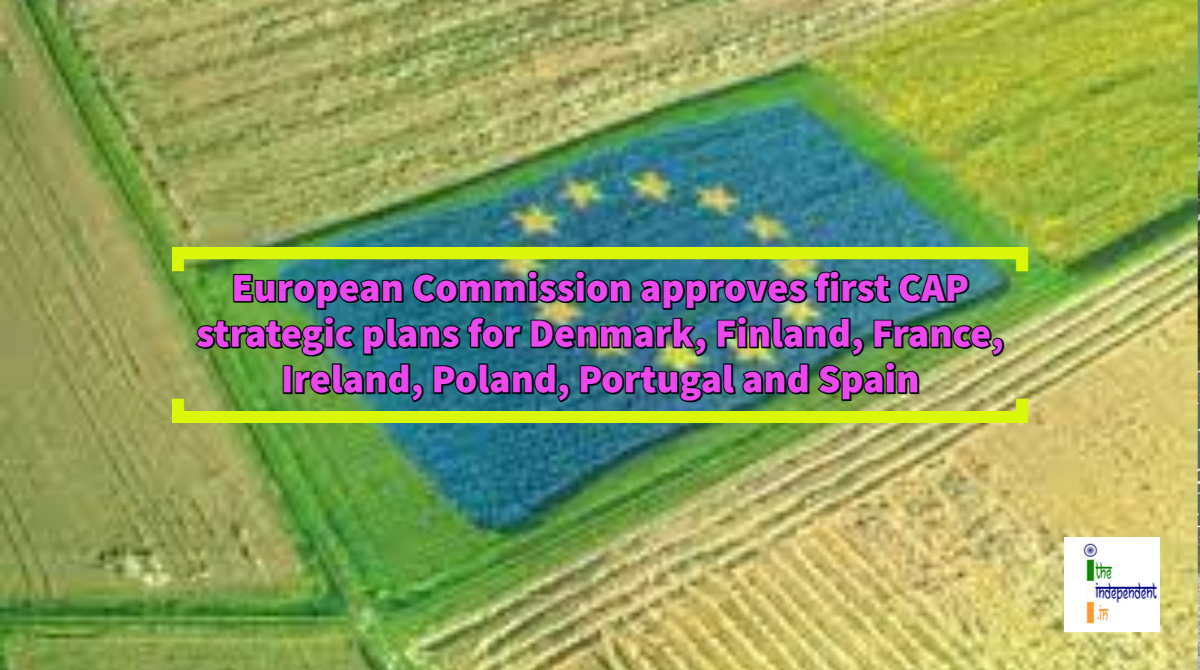
The new CAP is designed to transition the European Union (E.U.) agricultural sector to a sustainable, resilient and modern sector
The European Commission has approved the first package of Common Agricultural Policy (CAP) strategic plans for Denmark, Finland, France, Ireland, Poland, Portugal, and Spain.
The new CAP is designed to transition the European Union (E.U.) agricultural sector to a sustainable, resilient and modern sector. The new CAP will be implemented on January 1, 2023.
Under the reformed policy, funds would be distributed more fairly to small and medium-sized family farms, as well as to young farmers. The farmers will also be supported to take up new innovations, from precision farming to agro-ecological production methods.
In the wake of Russian invasion of Ukraine, the European Commission invited Member States to exploit all opportunities in their CAP strategic plans to strengthen the resilience of their agricultural sector in order to promote food security. This includes reducing dependence on synthetic fertilisers and scaling up the production of renewable energy without undermining food production, as well as promoting sustainable production methods.
The E.U. Member States will implement national CAP Strategic Plans, combining funding for income support, rural development and market measures. In designing their CAP Strategic Plan, each Member State chose from a wide range of interventions at E.U. level, tailoring and targeting them to address their specific needs and local conditions. The Commission has been assessing whether each Plan builds towards the ten key CAP objectives, which touch upon shared environmental, social and economic challenges.
Speaking on the occasion, the Agriculture Commissioner of E.U. – Janusz Wojciechowski, said, “We are now one step closer to implementing a new CAP for the next five years. This step comes at a crucial moment, when the importance of providing robust support for our farming sector has become abundantly clear. Farmers are facing a challenging environment, marked by the sharp increase in production costs due to the Russian aggression in Ukraine, as well as the recent summer drought.”
He further said, “Farming is a long-term business and European farmers need to have a clear legal and financial framework for the future. The new CAP will help us to support stable farming livelihoods and long-term food security by fostering a smart, competitive, resilient and diversified agricultural sector. I commend the hard work of the Member States to finalise their Plans and support their agricultural sectors. The Commission will continue to provide guidance to make the best use of what the CAP has to offer for our farmers, rural communities, and our citizens as a whole.”
Taking it to twitter, the European Commission tweeted,
A resilient and modern
— European Commissionagricultural sector.
Today we have adopted the first plans of the new CAP for seven countries.
The new CAP will support stable farming livelihoods and long-term #FoodSecurity by fostering a smart, competitive, and diversified agricultural sector.(@EU_Commission) August 31, 2022
The CAP will benefit from € 270 billion in funding for the 2023-2027 period. The seven Plans approved today represent a budget of over € 120 billion, including over € 34 billion dedicated exclusively to environmental and climate objectives and eco-schemes. This amount can be used to promote beneficial practices for soil, and to improve water management and grassland quality. The CAP can also promote afforestation, fire prevention, restoration and adaptation of forests.
It further tweeted,
The new CAP’s objectives will cover the three dimensions of sustainability:
— European Commissionenvironmental
economic
social
The Plans are in line with EU legislations and should contribute to the #EUGreenDeal climate and environmental goals for 2030, including on animal welfare. pic.twitter.com/FurRMPSary(@EU_Commission) August 31, 2022
Farmers participating in eco-schemes may be rewarded, inter alia, for banning or limiting the use of pesticides, and limiting soil erosion. Around 86% and 97% of the national utilised agricultural area will be farmed under good agricultural and environmental conditions.







